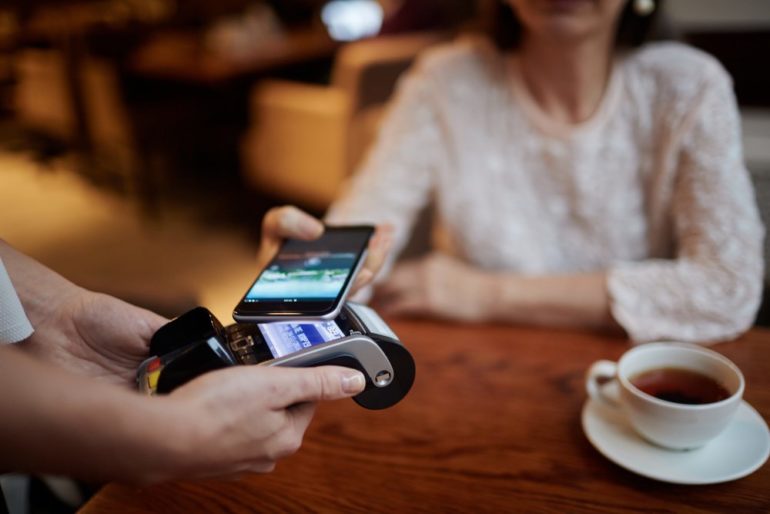Using our mobiles for virtually every transaction we make is now easier than ever. From purchasing a coffee to paying for your next holiday, transactions of all varieties can now be done online.
Indeed, with figures showing that more than 30 percent of cards transactions are now contactless, mobile payment services such as Apple Pay are now becoming more popular among consumers. While the number of contactless mobile payments is likely to increase in the coming years, the movement towards a new payment medium has also led to some interesting breakaway innovations.
One of the most interesting developments over the last five years is “Pay by Mobile”. Essentially a way of completing a financial transaction without using your bank account, this system has started to make a name for itself in a variety of high industries. For example, pay by mobile casino sites have streamlined the deposit process for players by linking payments to their mobile bill. By inputting their phone number instead of card digits, players can make a small deposit without having to include any personal details.
Pay with Nothing More than a Mobile Number
In simple terms, when users want to use the pay by mobile system, they have to go through the following process.
- Visit the payment page of whatever service they’re’ using.
- After selecting pay by mobile, the selects the amount to pay.
- Once the amount has been confirmed onscreen, the user has to input their phone number.
- When the phone number has been recorded, the system will send the user a text message.
- To confirm the transaction, the user must respond to the message with a Y. To cancel the transaction, it’s an N for no.
- Finally, once the transaction has been confirmed, the payment will be completed with the merchant and the appropriate amount will be deducted from the user’s mobile phone bill.
In terms of offering a secure system, something users now demand, this dynamic clearly has its benefits. In the first instance, deposits are limited to £30 each day, which means you can’t lose a fortune in a single deposit. Secondly, the transactions aren’t linked to your bank account. This makes it almost impossible for criminals to hack into a customer’s account and then get access to their financial details. In an age where cyber security is paramount, any system that can protect users is worth considering. Indeed, according to the latest statistics, almost 2 billion data records were lost or stolen in the first six months of 2017.
Companies Can’t Afford to Compromise on Security
Aside from security breaches being a PR nightmare for the companies involved, they cost money. The average cost of a stolen data file is now $141/£100 according to the Ponemon Institute’s 12th annual Cost of Data Breach Study. However, what businesses also need to factor into this is the lost revenue. If a customer’s account is hacked and their financial data is abused by a cybercriminal, the chances are they aren’t going to return. Losing customers naturally leads to lost revenue and, therefore, a greater overall cost linked to cyber security breaches.
Although pay by mobile solutions aren’t impervious to attacks, the disconnect they create between a user’s bank and their online account is important. While it’s true that this method’s ease of use is something consumers will appreciate, the real value of platforms such as Boku is the security they provide. In fact, to ensure safety standards remain high, the following organisations are involved in policing the industry:
- Phone-paid Service Authority (PSA) – A UK regulator that oversees and deals with incidents where a mobile user has received an unexpected charge to their bill.
- Ofcom – A government-approved regulator that controls the telecommunication and broadcasting industries.
- AIME – A trade association within the mobile industry that aims to set out codes of practice for developers and merchants that use mobile technology, including services such as Apple Pay and pay by mobile.
Opportunities Across the Business Sector
Today, as long as a user is connected to a major UK mobile network such as EE, O2 or Vodafone, or one of 173 international carries, they can use a pay by mobile service. What this means in practice is that companies in a variety of sectors can now take advantage of this payment option. As it stands, Boku, offers checkout solutions for companies in the music, mobile apps, gaming and more. However, these examples are just the tip of the iceberg.
With mobile technology now capable of delivering an efficient service and phone payments becoming second nature for consumers, more developments are likely to emerge. Indeed, any business that values customer service and security should be looking towards pay by mobile methods. Although major purchases fall outside of this technology’s capabilities at the moment, low value items fit perfectly into the niche. Moreover, thanks to Boku’s recurring payment system, monthly subscriptions can also be handled using pay by mobile service. What this suggests is that any business that’s not using this technology is missing out. With security and efficiency the cornerstones of any business, offering customers the opportunity to pay using their phone bill seems an obvious move.


